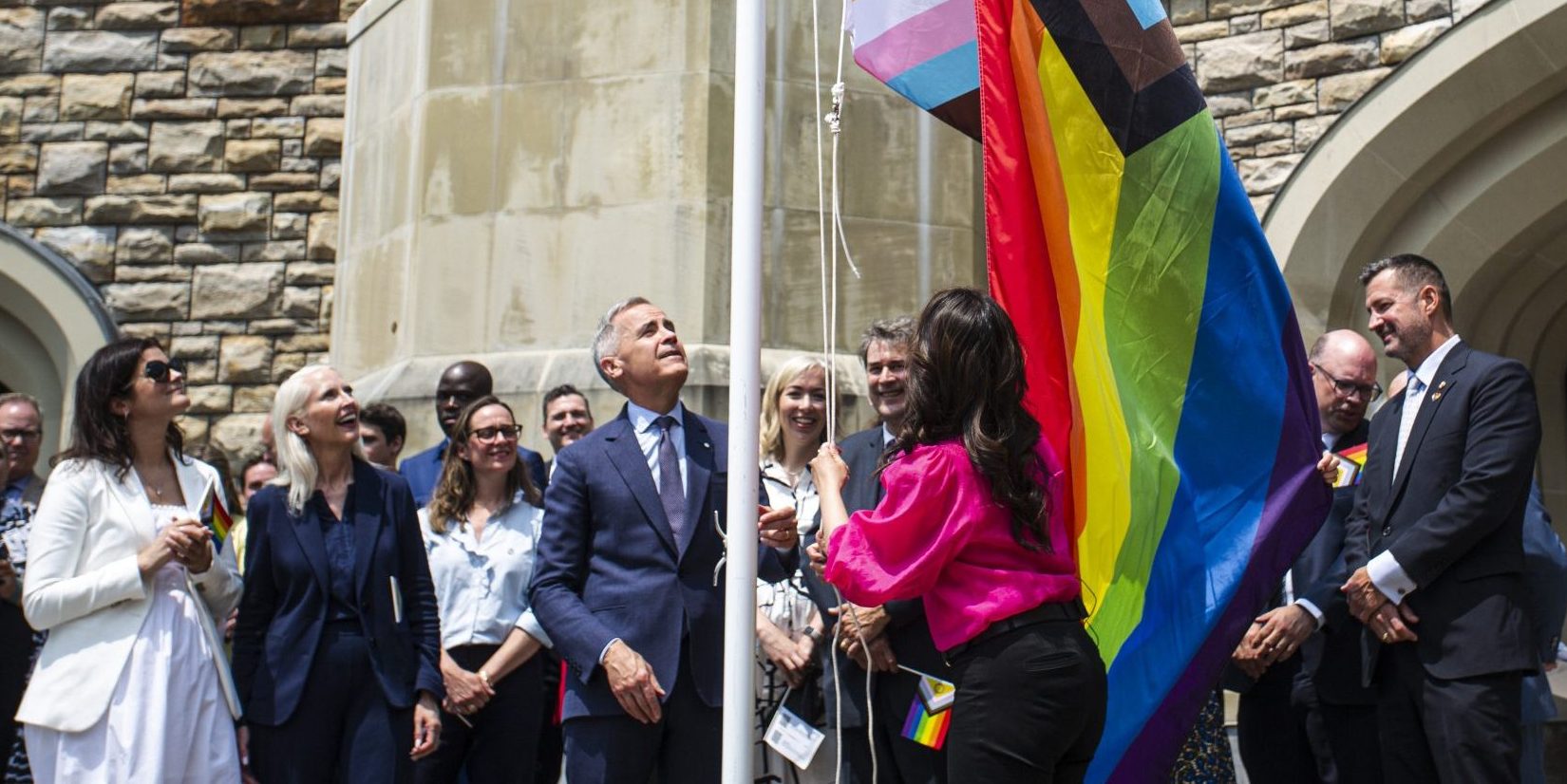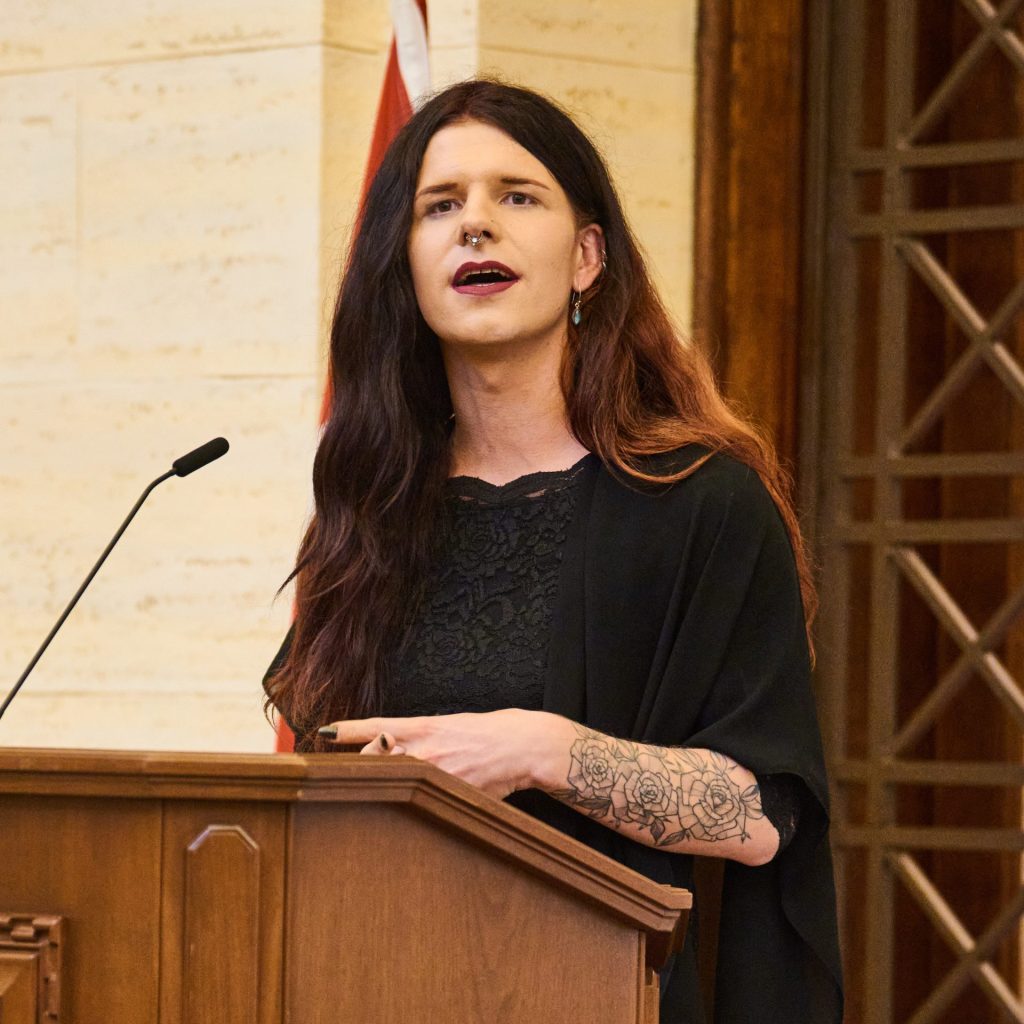Is PM Carney abandoning women, girls, and queer people in his austerity agenda?

We are at a critical juncture in Canadian history as we witness a global backlash to women’s equality and 2SLGBTQIA+ rights. Hate and violence are rising, and two Canadian provinces have passed anti-trans legislation that critics argue violate Charter-protected rights. South of the border, the United States is becoming an increasingly hostile nation when it comes to women’s rights and 2SLGBTQIA+ equality. The beautiful and imperfect consensus on equality and human rights has become fragile. In some places, it has shattered completely.
In Canada and around the world, women, girls, and queer people are looking for leadership—for governments to stand up to rising hate, and safeguard the progress we have made. The question becomes: is Prime Minister Mark Carney up to the challenge? Or will Canada’s commitment to equality and human rights be sacrificed in the name of austerity?

Carney was elected on an economic agenda, where he positioned himself as the best option to deal with U.S. President Donald Trump and unlock Canada’s economic potential. But at what cost? And borne by whom? Under Carney’s austerity agenda, women’s advocates and 2SLGBTQIA+ activists are sounding the alarm that Women and Gender Equality Canada (WAGE)—the federal department responsible for advancing women’s rights and 2SLGBTQIA+ equality—may be on the chopping block.
An updated departmental plan published by WAGE this past August shows that the department faces an 81-per-cent budget reduction by 2027-28 if new funds aren’t invested. Such a cut would make the department a shell of its former self with devastating, long-term repercussions to women and 2SLGBTQIA+ people.
WAGE is a small, but mighty, department that plays numerous roles: it provides advice to other departments on issues of gender equality and 2SLGBTQIA+ rights, advances anti-discrimination efforts, and, perhaps most importantly, channels funding into local women’s and 2SLGBTQIA+ organizations across Canada. With costs rising, those funds have been a lifeline—helping keep services open and ensuring local support for vulnerable community members.
If funding is reduced by 81 per cent, WAGE will be unable to effectively carry out its mandate, and the funding it channels to women-serving and 2SLGBTQIA+ organizations across the country will be cut. That means that your local women’s shelter, your local queer community organization, and a ton of other programs aimed at supporting vulnerable community members, advancing equality, and unlocking the economic potential of marginalized communities will be placed in an untenable financial situation. Organizations will shutter, services will close.
These organizations aren’t just a “nice to have.” They’re critical to those affected by violence, poverty, discrimination, and homelessness who rely on their services. They also play a longer-term role—tackling the discrimination that leads to lost economic output and worse health outcomes. Lost economic output and worse health outcomes mean lost economic activity (and thereby, lost tax dollars) and more costs to taxpayers through greater need for health and social services.
Morally, we should support these services because we care about those whose lives are made harder and harsher by discrimination. Pragmatically, we should support these services because they’re in our long-term economic best interest. More equality and less discrimination leads to stronger economies.
The unpleasant, accompanying truth? You can’t tackle equality overnight, and progress can’t be achieved without real, sustained, investment. But it is well worth the cost. The previous prime minister understood that, which is why the women’s department saw significant growth during his tenure.
Under Carney, the future of women’s and 2SLGBTQIA+ equality funding is much more uncertain. He’s definitely less showy on social issues than Justin Trudeau was, but there’s no proof that means he’s less committed to them. But if WAGE is reduced to a shell of itself in this budget, we’ll know his priorities do not include equality and human rights for women and 2SLGBTQIA+ people.
Cuts will be taken as a sign that Canada—like America—is turning its back on equality and human rights for women and 2SLGBTQIA+ people at the exact moment we need our government to step up. As hate and violence grow, as misogyny and homophobia make a comeback, Canadians will need their local queer and women’s organizations more than ever.
In this economic landscape, we as advocates aren’t asking for more. We understand budgets are tight for Canadians and our governments. But services can’t survive on less. They’ve been made to do more with less, time and time again. They’re stretched to breaking already, even as local demand continues to increase.
The prime minister still has time to correct the course, and to listen to women and queer people across Canada and pledge to maintain funding at existing levels. Let’s hope he does the right thing and the smart thing, and shows he won’t leave women, girls, and queer people behind.
Fae Johnstone is the executive director of Queer Momentum, and a leading 2SLGBTQIA+ human rights advocate.
The Hill Times





 LICENSING
LICENSING PODCAST
PODCAST ALERTS
ALERTS


